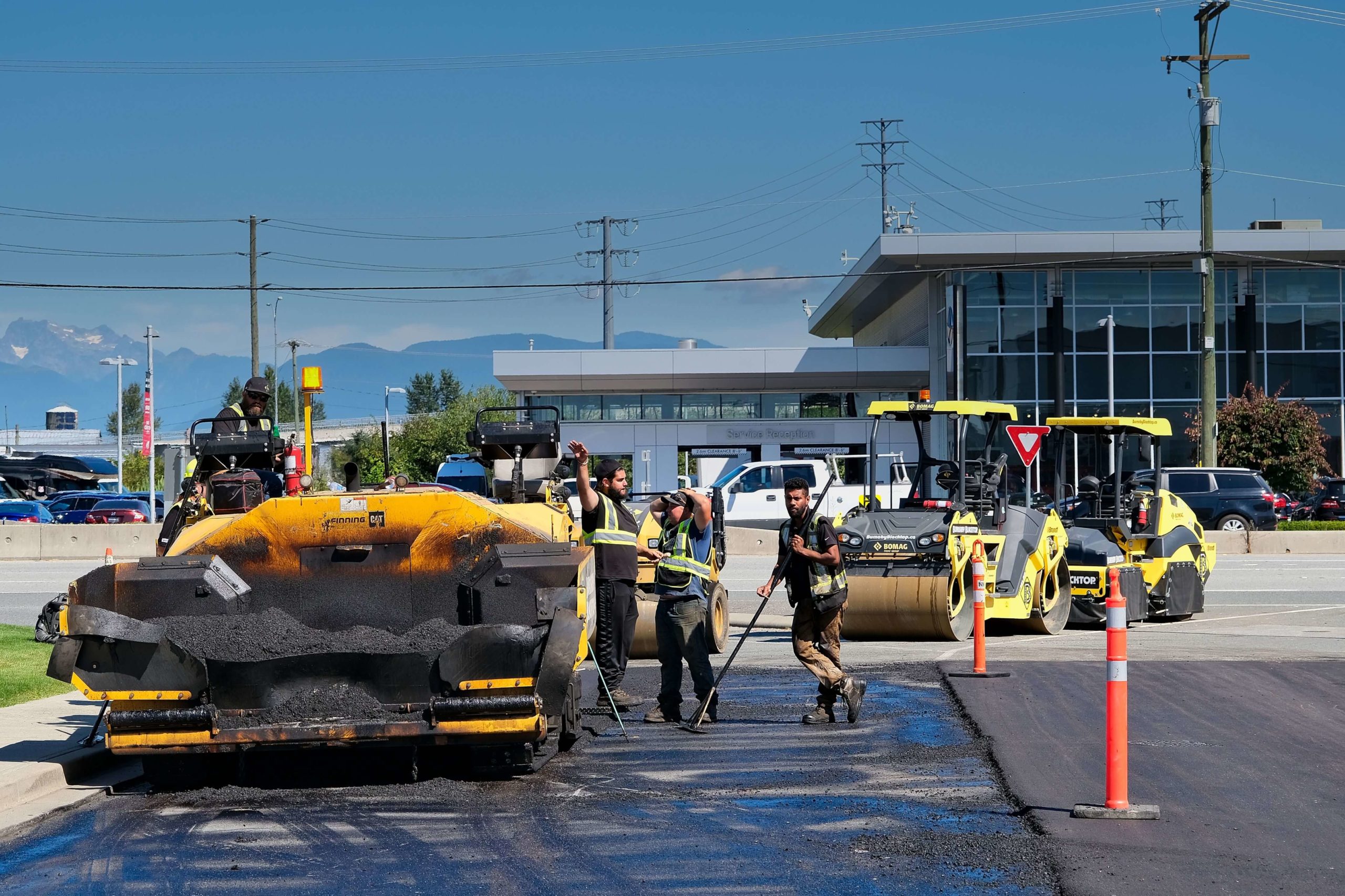Protect Surface Areas with Expert Asphalt Sealing: Cold Mix Fundamentals
Wiki Article
Cold Mix Asphalt Vs. Hot Mix Asphalt: Which Is Right for You?

Structure Differences
Cold mix and hot mix asphalts vary significantly in their structure, with unique attributes that influence their performance and applications. Cold mix asphalt is produced by emulsifying the asphalt binder with water and an emulsifying representative before mixing it with aggregate. This technique permits for the asphalt to be convenient at lower temperature levels, making it ideal for short-term fixings and for use in chillier climate condition. Hot mix asphalt, on the various other hand, is manufactured at heats, commonly in between 300-350 ° F, which helps to accomplish better compaction and an extra resilient final product. The hot mix asphalt production procedure involves heating the accumulation and asphalt binder individually prior to combining them at the asphalt plant.
Additionally, chilly mix asphalt often tends to be much less thick and a lot more flexible than warm mix asphalt. This versatility makes it far better matched for locations with higher degrees of motion, such as driveways or roadways with rush hour. In comparison, warm mix asphalt is recognized for its high durability and resistance to rutting and fracturing, making it a recommended selection for highways and high-traffic roadways where longevity is vital.
Installation Refine Variances
The process of installing chilly mix and hot mix asphalt shows noteworthy variances in their needs and procedures. In comparison, warm mix asphalt necessitates a more fancy installment procedure. Due to the home heating demands, hot mix asphalt setups are commonly brought out by specialists with customized equipment, making certain a much more structurally audio and irreversible outcome.Longevity and Durability Variables
When taking into consideration asphalt choices, longevity and durability are critical factors to assess for long lasting pavement efficiency. Hot mix asphalt (HMA) is understood for its phenomenal sturdiness and durability.
In regards to durability, HMA usually exceeds CMA due to its remarkable strength and resistance residential or commercial properties. HMA sidewalks have a longer life span, calling for much less frequent fixings and upkeep, which can translate to set you back savings in the long run. In addition, HMA sidewalks are extra easily personalized to fulfill specific job needs, further enhancing their sturdiness.
Expense Considerations
Thinking about the monetary ramifications is an essential element when assessing the selection in between hot mix asphalt (HMA) and chilly mix asphalt (CMA) for sidewalk projects. While the initial cost of hot mix asphalt is typically greater than that of chilly mix asphalt, HMA frequently gives a much more affordable option in the future because of its exceptional resilience and durability. HMA is known for its capability to stand up to heavy traffic tons and extreme weather, lowering the demand for frequent repair work and maintenance. On the other hand, cold mix asphalt is a lot more affordable in advance yet might require even more regular patching and resurfacing, resulting in higher upkeep costs gradually.Along with material prices, it's vital to consider the costs connected with installation and maintenance when comparing HMA and CMA. HMA typically requires customized devices and knowledgeable labor for proper installation, which can influence overall job expenses. On the other hand, CMA is simpler to collaborate with and can frequently be applied making use of simpler strategies, potentially lowering setup expenditures. Inevitably, the decision in between HMA and CMA need to take angle parking right into account not just the first price but additionally the long-term monetary effects to identify one of the most affordable choice for the specific sidewalk project.
Environmental Effect Contrast
Contrast of the ecological effects in between warm mix asphalt (HMA) and chilly mix asphalt (CMA) exposes distinct differences in sustainability techniques. HMA manufacturing requires high temperature levels, leading to enhanced energy usage and greenhouse gas exhausts.Moreover, the use of CMA typically includes reusing existing asphalt pavement, advertising resource preservation and minimizing the amount of waste sent to land fills. By opting for CMA over HMA, road construction jobs can add favorably to ecological preservation initiatives.
Final Thought
Finally, the option between chilly mix asphalt (CMA) and hot mix asphalt (HMA) relies on numerous variables such as composition, installation process, sturdiness, longevity, price, and ecological impact. asphalt repair. While CMA offers a quick and affordable solution for small repair services, HMA ensures remarkable sturdiness and durability for rush hour locations. Think about these factors carefully to determine which kind of asphalt is the appropriate option for your paving requires

Thinking about the economic effects is an essential facet when reviewing the selection between hot mix asphalt (HMA) and cold mix asphalt (CMA) for pavement jobs. While the preliminary expense of warm mix asphalt is commonly greater than that of chilly mix asphalt, HMA usually offers a more cost-efficient solution in the long run due to its superior sturdiness and longevity. asphalt repair.Comparison of the ecological effects between hot mix asphalt (HMA) and cold mix asphalt (CMA) reveals distinct differences in sustainability practices.In conclusion, the option between cold mix asphalt (CMA) and hot mix asphalt (HMA) depends on various aspects such as make-up, installment process, durability, durability, expense, and environmental impact
Report this wiki page